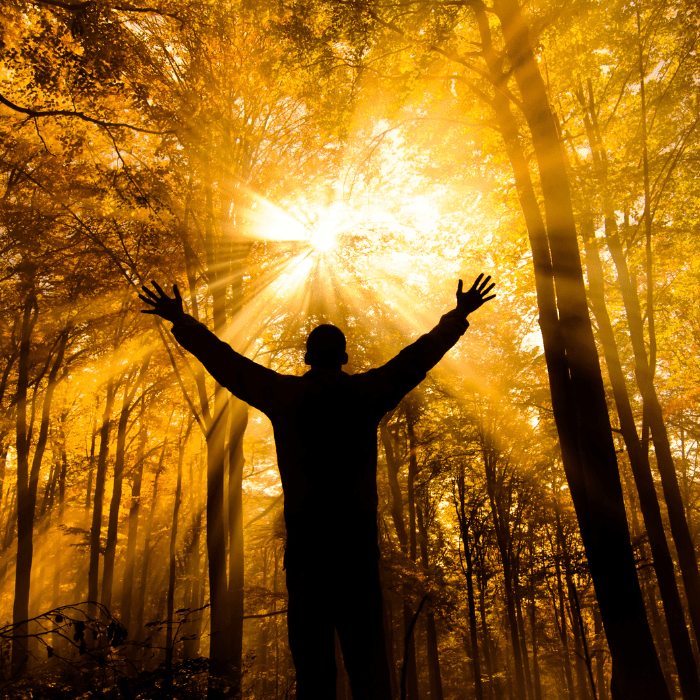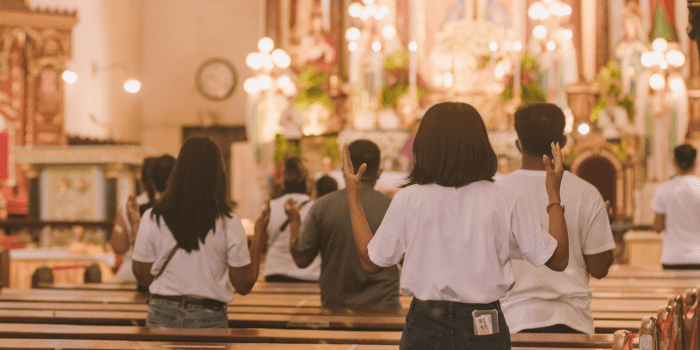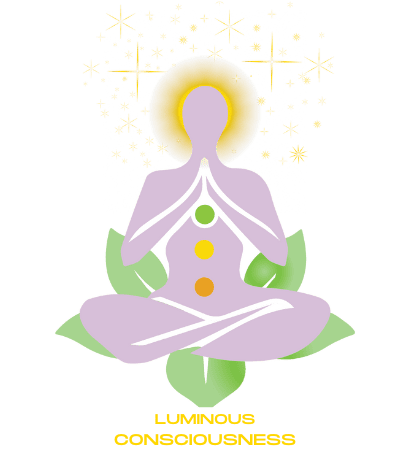Here’s a little transparency: Our website contains affiliate links. This means we may receive a small commission if you click and make a purchase. Don’t worry—there’s no extra cost to you. It’s a simple way you can support our mission to bring you quality content. Learn more at the Affiliate Disclosure page.

Religion vs. Spirituality: Which Path Is Right for You?
Let’s explore the origins of spirituality and religion. Some say they’re two sides of the same coin but have distinct roots.
Spirituality is as old as human consciousness, a quest to understand the mysteries of existence and our place in the cosmos. It’s more personal and fluid, with roots in various traditions and philosophies. Ancient shamans, mystics, and philosophers laid down the foundational elements of spirituality. They pondered on the nature of the soul, the universe, and the link between them. For them, it wasn’t about following a set doctrine but exploring spiritual experiences and inner transformations.
On the other hand, organized religions have more structured beginnings, often tied to the lives and teachings of key historical figures. Think of prophets, religious leaders, or sages who shared their revelations and gathered followers. Texts like the Bible, Quran, Vedas, and others encapsulated these teachings, creating a more systematic approach to connecting with the divine. Religions laid out specific rules, rituals, and hierarchies, structuring the spiritual practices of their adherents.
Take early Hinduism and its texts like the Vedas, compiled by ancient seers and called Rishis. Or consider Buddhism, founded by Siddhartha Gautama (the Buddha), who turned his spiritual enlightenment into structured teachings. Christianity sprung from the life and lessons of Jesus Christ, while Islam was born from Prophet Muhammad’s revelations. Organized religions set the stage for communal worship, institutionalized rituals, and a faith-based collective identity.
So, while spirituality tends to be inward and personal, religion often focuses outward, emphasizing community and tradition. Understanding these origins helps us see why they sometimes clash and how they can complement each other.
Exploring the Differences Between Spirituality and Religion
Common Grounds: Exploring the Similarities
Both spirituality and religion seek a deeper understanding of life and existence. This quest unites them, even though their approaches might differ.
One significant similarity is their moral and ethical guidelines. Both paths promote values like kindness, compassion, and respect for others. These shared morals help build trust and coherence in communities.
Rituals are also common ground. Whether meditation, prayer, or attending services, these practices serve as touchstones for believers, helping them connect with something greater than themselves.
Community and social bonding play a significant role in spirituality and religion. Individuals find a sense of belonging and support through communal activities and gatherings. This social aspect can be incredibly uplifting and reassuring.
At their core, both spirituality and religion are about seeking inner peace and enlightenment. Through prayer or mindfulness, they offer pathways to personal growth and fulfillment.

Setting Them Apart: Key Differences Between Spirituality and Religion
Spirituality is often more personal and individualized. It’s a journey that doesn’t necessarily follow a prescribed path. People engage in meditation, mindfulness, or other personal practices to connect with their inner selves and the universe. Spirituality is flexible and adaptable and can evolve with a person’s experiences and insights.
Religion, on the other hand, is more organized and institutionalized. It involves established doctrines, rituals, and a structured hierarchy. Followers adhere to teachings set forth by religious texts and leaders. There’s a clear framework that guides beliefs and practices. This structure provides a sense of community and shared identity but can also feel restrictive for some.
Doctrinal authority is another significant difference. In religion, there’s often a reliance on sacred texts and religious leaders who interpret and define the faith’s tenets. This authoritative approach can offer clear guidance but may leave little room for personal interpretation.
Spirituality usually promotes individual experience over doctrine. It’s about personal growth and spiritual awakening without the constraints of a predefined belief system. This focus on personal experience allows for a more fluid and dynamic spiritual journey.
Rituals and practices mark another point of divergence. In religion, rituals are prescribed and communal, creating a sense of shared experience and tradition. Spiritual practices, however, tend to be more personal and spontaneous, tailored to individual needs and circumstances.
Finally, belief systems and dogmas highlight religion’s rigidity compared to spirituality’s flexibility. Religions often have specific doctrines that followers are expected to accept. In contrast, spirituality welcomes an open-ended search for truth, allowing for a more personalized and evolving exploration of faith.

Societal Impact: The Role of Spirituality and Religion in Society
Spirituality often encourages personal growth and well-being. Meditation, mindfulness, and self-reflection can improve mental health, reduce stress, and create a greater sense of fulfillment. It’s personalized and flexible, empowering individuals to find their path to happiness and inner peace.
Religion plays a significant role in establishing societal norms and laws. Many legal systems worldwide have roots in religious doctrines, shaping moral and ethical standards. Religion provides a framework for communal living, encouraging people to act harmoniously with societal values.
Religious organizations often play a vital role in community building and social services. Churches, mosques, temples, and other religious institutions organize activities, charity work, and support networks that foster a sense of belonging and mutual aid. These initiatives can address social issues such as poverty, education, and healthcare.
Both spirituality and religion significantly influence culture and traditions. Religious festivals, ceremonies, and rituals are deeply embedded in cultural heritage. Spiritual practices also contribute to artistic expression, inspiring art, music, and literature that reflect the human spirit’s quest for meaning.
However, controversies and conflicts can arise from religious beliefs. Historical and contemporary conflicts often have spiritual undertones, leading to misunderstanding and division. In contrast, spirituality, being more personal and less structured, is less likely to result in such conflicts, focusing instead on individual harmony and universal compassion.
Mind Matters: Psychological Effects of Spirituality and Religion
Spirituality is often associated with numerous mental health benefits. Meditation, mindfulness, and self-reflection can help reduce stress, improve mood, and enhance overall well-being. Engaging in these activities allows individuals to connect with their inner selves, fostering a sense of peace and clarity.
Religious adherence can also have significant cognitive and emotional impacts. Participating in communal worship, following religious teachings, and engaging in rituals provide a sense of structure and purpose. This can be exceptionally comforting in times of crisis, offering hope and a sense of belonging.
Spirituality can serve as an effective coping mechanism. By focusing on the present moment and cultivating inner peace, individuals can better manage stress, anxiety, and trauma. Spiritual practices often emphasize forgiveness, gratitude, and compassion, contributing to emotional resilience.
Religious communities offer robust support systems. They create a network of like-minded individuals who provide emotional, mental, and sometimes even financial support. This social framework can be a significant source of comfort and strength, particularly during challenging times.
Conversely, rigid religious dogmas can sometimes lead to psychological downsides. Fear of judgment, guilt, and strict adherence to rules can create mental stress and hinder personal growth. In contrast, spirituality’s more relaxed and individualistic approach often allows for a more nurturing and non-judgmental environment.
Evidence Through the Ages: Scientific Perspectives on Spirituality and Religion
Ancient artifacts and texts offer fascinating insights into spiritual practices. From prehistoric cave paintings depicting shamanic rituals to ancient texts on yoga and meditation, these remnants show that spirituality has been an integral part of human history. These practices have been passed down through generations, adapting and evolving.
Science backs some of these ancient spiritual practices. For example, numerous studies highlight the benefits of mindfulness and meditation on mental health, echoing practices that have been around for millennia. Neuroimaging research shows that these practices can alter brain structure and improve emotional regulation, underscoring their lasting impact.
Regarding religion, ancient manuscripts, temples, and religious artifacts provide a window into historical beliefs and practices. Archeological discoveries continue to validate the existence of early religious practices, shedding light on how they shaped civilizations. Religious texts like the Dead Sea Scrolls and the Rosetta Stone offer critical insights into the development of religious thought.
Scientific research has also examined religious experiences and their psychological effects. Studies show that religious practices can activate brain regions involved in reward, social bonding, and emotional processing. These findings help us understand why religion remains a powerful force in people’s lives.
Neuroscientific studies are exploring the brain’s role in spiritual experiences. Researchers are investigating how spiritual ecstasy, near-death experiences, and other profound spiritual states affect brain activity. These studies aim to demystify spiritual experiences and explore what happens in our brains during these moments.
Studies are ongoing to explore the evolving relationship between science, spirituality, and religion. Researchers aim to understand how these practices affect our biology, psychology, and well-being. As science advances, it offers new perspectives on how spirituality and religion shape the human experience.

Finding Balance: Spirituality, Religion, and Personal Focus
People often wonder whether they should focus more on spirituality or religion. The truth is, this isn’t a one-size-fits-all situation. Both paths offer valuable insights and benefits, but the choice depends on individual needs and circumstances.
Spirituality is an excellent choice for those seeking personal growth and inner peace without the constraints of organized doctrines. Its flexibility allows for a more personalized journey, adapting to individual experiences and evolving over time. Spirituality might be the way to go if you prioritize personal development and a direct connection to the universe or God, without intermediaries.
On the other hand, religion provides a structured approach to faith, offering community support, shared rituals, and a sense of belonging. Religion can be incredibly fulfilling if you find comfort in tradition, communal worship, and established moral guidelines. It provides clear pathways and a collective identity, which can be comforting and stabilizing in a complex world.
My Take
Both spirituality and religion can coexist in one’s life. Many people find that blending elements of both paths provides a more enriching experience. Engaging in personal spiritual practices while participating in religious community activities can offer the best of both worlds.
It’s essential to explore both paths with an open mind. Read, learn, and experience different practices and teachings to find what resonates. The journey is deeply personal, and what works for one person may not work for another. The key is to remain curious and open to growth, allowing your beliefs to evolve as you gather new experiences and insights. The most important thing here is to ensure you’re not misled with dogma or scare tactics, as we see with many faith-based practices. Always research deeper than what you’re told, ask questions, unlearn old facts, relearn new facts, and continue to learn and ask questions – there’s no destination; it is a journey. This is the only path to enlightenment and a joyful life.
Ultimately, the focus should be on what brings you growth, peace, fulfillment, a deeper understanding of life, and knowing the Truth. Whether you lean towards spirituality, religion, or a blend of both, the goal is to enrich your life and foster a sense of connection, purpose, and well-being.
My Top 10 Books in both Spirituality and Religion
Discover the History and Depth of Spirituality and Religion with These Must-Read Books
Understanding the historical roots of spirituality and religion can be incredibly enlightening as we embark on spiritual exploration and self-discovery journeys. While I may have yet to read all of the books on this list personally, scholars, spiritual leaders, and seekers highly recommend them. Each offers a unique perspective on the evolution of thought belief systems and how spirituality and religion have shaped our world.
Why These Books?
The following titles span centuries of wisdom, delve into the mysteries of human consciousness, and uncover the rich history behind some of the world’s most influential spiritual and religious traditions. Whether you’re interested in exploring esoteric teachings, understanding the development of religious beliefs, or simply seeking inspiration for your personal journey, these books can provide profound insights.

Recommended Books on Spirituality:
1. The Perennial Philosophy by Aldous Huxley
A deep dive into the universal truths found in all spiritual traditions. It is a must-read for anyone interested in the common threads that connect spiritual thought across cultures.
2. The Tao of Physics by Fritjof Capra
If you’re curious about the intersection of spirituality and modern science, this book bridges ancient wisdom with contemporary physics.
3. The Varieties of Religious Experience by William James
A foundational text in understanding personal spiritual experiences, which have shaped spiritual thought throughout history.
4. The Secret Teachings of All Ages by Manly P. Hall
For those interested in the esoteric side of spirituality, this classic explores hidden spiritual traditions from across the globe.
5. Autobiography of a Yogi by Paramahansa Yogananda
This autobiographical work offers a personal and historical perspective on Indian spiritual practices and the journey of self-realization.
6. Journey of Souls by Michael Newton
It is an intriguing exploration into past lives and the spiritual journeys of souls, offering insight into the spiritual evolution of consciousness.
7. The Power of Now by Eckhart Tolle
A transformative guide to living in the present moment, rooted in centuries-old spiritual wisdom.
8. Siddhartha by Hermann Hesse
It is a beautifully written novel that captures the essence of spiritual enlightenment and the quest for meaning in ancient India.
9. The Upanishads, translated by Eknath Easwaran
These ancient Indian texts provide some of the earliest spiritual insights into the nature of reality, consciousness, and the self.
10. The Tibetan Book of Living and Dying by Sogyal Rinpoche
A powerful guide to life, death, and transformation, blending ancient Tibetan wisdom with modern spiritual practices.
Recommended Books on Religion:
- A History of God by Karen Armstrong
A fascinating exploration of the history of monotheism, from ancient times to modern-day religions. - The Gnostic Gospels by Elaine Pagels
Uncover the history of early Christian texts that were hidden away for centuries and their impact on the formation of Christianity. - The World’s Religions by Huston Smith
A comprehensive guide to the world’s major religious traditions, exploring their historical origins and core beliefs. - No God But God: The Origins, Evolution, and Future of Islam by Reza Aslan
This book provides a historical perspective on the origins of Islam and how it continues to evolve today. - The Life of the Prophet Muhammad by Ibn Ishaq
One of the earliest and most detailed biographies of Prophet Muhammad, offering a glimpse into the foundations of Islam. - The Case for God by Karen Armstrong
Tracing the development of religious thought from ancient times, this book challenges modern misconceptions about the nature of faith. - Zealot: The Life and Times of Jesus of Nazareth by Reza Aslan
A historical account of the life of Jesus that separates the religious narrative from historical reality, making it a must-read for those interested in early Christianity. - The Bhagavad Gita, translated by Eknath Easwaran
A cornerstone of Hindu spiritual and religious thought, this text offers timeless wisdom on duty, devotion, and the nature of reality. - God: A Human History by Reza Aslan
This compelling and thought-provoking book explores how humans have shaped their concept of God throughout history. - The Dead Sea Scrolls: A New Translation by Michael Wise, Martin Abegg Jr., and Edward Cook
A key historical resource for understanding early Jewish religious beliefs, this book provides translations of the ancient scrolls that have shaped our understanding of the Bible.
Final Thoughts
Each of these books represents a doorway into understanding the profound history of spirituality and religion. Whether seeking knowledge or inspiration, these titles are invaluable resources for your spiritual or intellectual journey.
Feel free to explore the titles that resonate with you, and if you’ve already read any of these, I’d love to hear your thoughts on how they’ve impacted your journey! Your experiences and insights are valuable to our spiritual and intellectual explorers community. You can share your comments below.
If you need to check on scientific studies, peer-reviewed articles, and more, please refer to our References page for an extensive list of references. Please check other useful links below:
